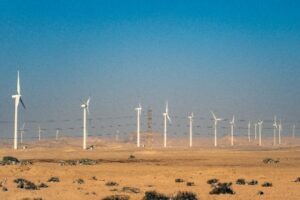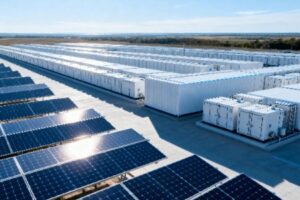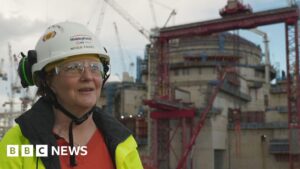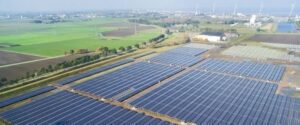Mystery developer announces plan to spend over $3bn on blue-hydrogen-to-methanol plant
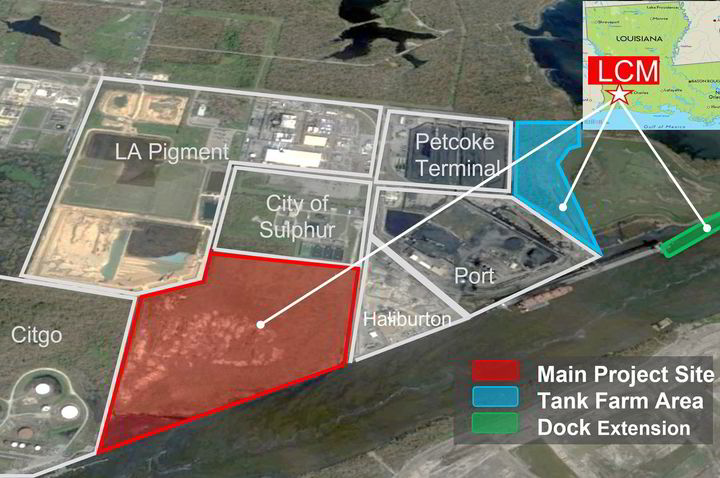
A mystery developer has announced plans to spend billions of dollars building a blue-hydrogen-to-methanol plant in Louisiana using methane and carbon capture and storage (CCS) — representing the second iteration of the project since its was first proposed in the 2010s.
Lake Charles Methanol II (LCM II) envisages spending $3.24bn on the construction of an autothermal reformer (ATR) — a high-efficiency steam methane reformer that makes H2 from natural gas — to produce around 500,000 tonnes of blue hydrogen annually at the site in the city of Lake Charles, southwest Louisiana.
Both fossil gas and renewable gases would be used as feedstocks in the ATR, LCM II claims, with one million tonnes of CO2 captured each year for sequestration and permanent storage in saline aquifers.
Some of the by-product carbon dioxide would be added to the hydrogen to make 3.6 million tonnes per year of methanol, an important chemical used in a vast array of products, and which has also been touted as an alternative shipping fuel.
Commercial operation is slated for 2027, with the methanol marketed in the US in order to offset imports of the chemical, LCM II said.
A final investment decision was due on the project in 2023, however this has now been pushed back to mid-2024.
Article continues below the advert
LCM II said that it plans to invest $3.24bn on the Lake Charles project — saying it has all the financing in place — however the total capex value on the plant is listed at $5bn on LCM II’s website, suggesting that either the project has been slimmed down, or that some financing is still yet to be finalised.
The company is currently hashing out the details on a $2bn guarantee-loan from the US Department of Energy, first agreed in 2016 for the first iteration of the project.
That scheme, promoted under the company name of Lake Charles Methanol (LCM) and backed by “equity sponsors” such as Danish chemical process firm Topsoe (which is providing the ATR technology for the second version of the project) and Aquamarine Investment Partners (the investor behind developer First Ammonia), envisaged a methanol production facility on the site using waste petrocoke as a feedstock, with CCS.
It is not clear whether the same backers are on board with the second version of the project — but LCM II notes on its website that LCM and LCM II are under “different ownership groups”, without identifying any of its current backers.
There is also the question of what happens to the carbon dioxide once it is captured from the LCM plant.
Excess carbon produced at the site would be transported off-site via a specially-built pipeline constructed by Exxon-owned CCS specialists Denbury, with which LCM II has a 20-year carbon transport and sequestration agreement.
The pipeline would connect with Denbury’s existing CO2 pipeline, known as the Green Pipeline, and then onward for permanent storage, Denbury said when it signed the agreement with the developers in 2022.
However, the Green Pipeline also links with oil fields wanting to use carbon dioxide in Enhanced Oil Recovery (EOR) — a production method in which CO2 is used to add pressure to the oil reservoir and increase oil output at otherwise depleted wells — raising the question of whether the carbon from the LCM II site would be used for oil production before being transported elsewhere for permanent storage.
Some of the carbon used in EOR stays in the well permanently after use, while some returns to the surface, and can either be used again and stored elsewhere. The International Energy Agency (IEA) has said that CO2 that returns to the surface after use in EOR can qualify as permanently stored if it is re-injected in a closed loop.
“The project will deliver substantial tangible economic benefits to local communities while providing an environmentally beneficial blue methanol product to facilitate the transition to low-carbon chemicals and fuels,” LCM President Don Maley said. “With the strong support of state and local officials and the local community, we believe that Lake Charles is a fantastic location for this project and we look forward to working with all stakeholders to bring it to fruition.”
Hydrogen Insight reached out to LCM II for comment but had not received a response at the time of publication.
